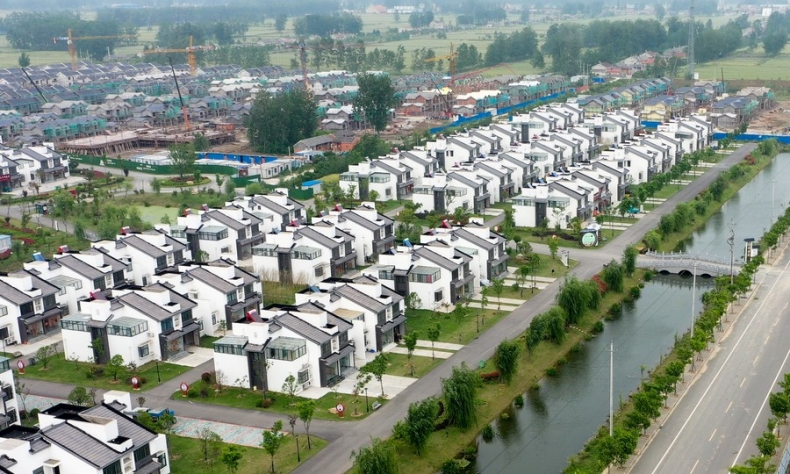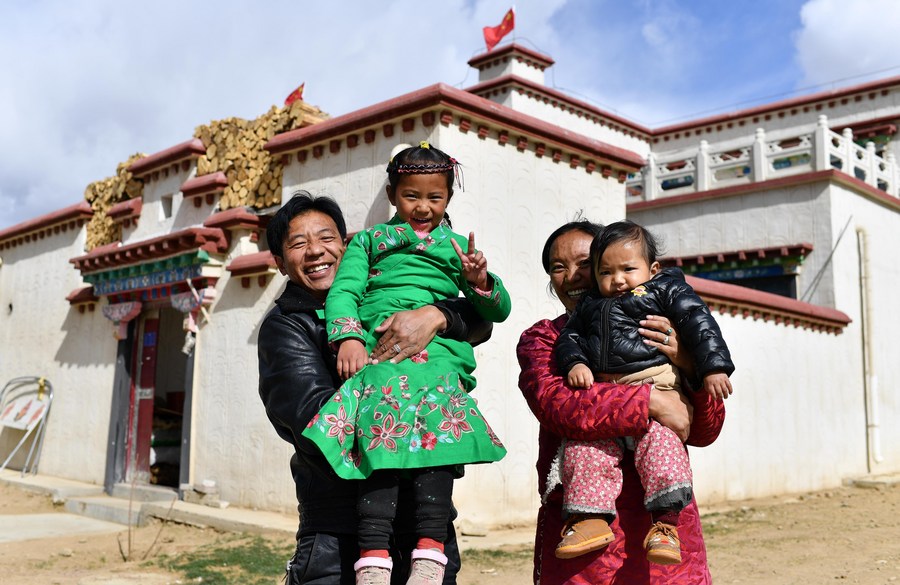Social Wealth: Leaving No One Behind

China’s concept of sharing homes in on a fairer distribution of wealth with the growth of wealth stemming from the concepts of innovation, coordination, green progress and openness.
Creating a society of fairness and justice is pretty much the consensus among nations the world over. In the vast majority of countries, from the developed to the developing world, however, the common picture is that the gains of a few result in the losses of many. As a result, different social levels are often pitted against each other.
In this context, China is keenly aware of the risks associated with a divided society. Like many other countries, it also faces pressing issues such as uneven regional development, rural and urban disparities and huge income gaps.
How can it create an ideal society of justice? President Xi Jinping has proposed doing so by following a new development philosophy, which emphasizes sharing the fruits of development and covers five elements spurring progress: innovation, coordination, green growth, openness and sharing.
President Xi first put forward his new notion for development in October 2015. The years that followed saw China shake off absolute poverty and create a relatively well-off society in an all-round manner. Having improved the living conditions of its citizens, the country now embarks on the journey toward common prosperity. The Chinese Government has reiterated it will see to it that all Chinese people will be better off as China evolves. Policies will be tilted in favor of rural areas, less developed regions and vulnerable groups to promote fairness and prevent wealth polarization.
The income growth rate of rural residents is currently higher than that of their urban peers. And the rural revitalization strategy—one closely intertwined with absolute poverty elimination and a core component of the Central Government’s goals to promote more balanced economic and social development—is already helping improve the rural social and ecological environment.

To realize the goal of development fruits being shared by all, the people must always come first. Their demands for material needs should be met, as should their political, economic, cultural and ecological requirements. The overall process of progress, in turn, requests the participation and dedication of all.
China is working to realize its dream of national rejuvenation, a catchphrase that envisions a day when the ancient civilization reaches its full potential and greatly contributes to the world. This journey features an adherence to the principle of sharing so that everyone has a sense of fulfillment. Whether it’s pursuing common prosperity or modernization, baking a bigger cake and distributing its slices more fairly, a metaphor about economic development and the redistribution of wealth in China’s political discourse, are equally important. This redistribution is achieved through social mechanisms such as taxation and welfare, without bending the rules of a market economy. Only in this way can the country achieve social fairness and justice in the real sense and can its people enjoy the fruits of development.
A range of expressions related to the new philosophy has popped up in recent years, including the likes of “a people-centered approach” and “rolling up our sleeves and buckling down to work.” This only goes to show how the concept is taking root in society.
Western policy discussions on poverty reduction—within the context of development—commonly use terms such as broad-based growth and pro-poor growth.
Although these concepts are by no means futile, they focus more on economic growth than on social equity. China’s concept of sharing homes in on a fairer distribution of wealth with the growth of wealth stemming from the concepts of innovation, coordination, green progress and openness. After all, people who are treated fairly and have improved opportunities are better able to contribute socially and economically to their community. Fairness is when everyone is treated equally and no one is left out—or behind.
 Facebook
Facebook
 Twitter
Twitter
 Linkedin
Linkedin
 Google +
Google +










